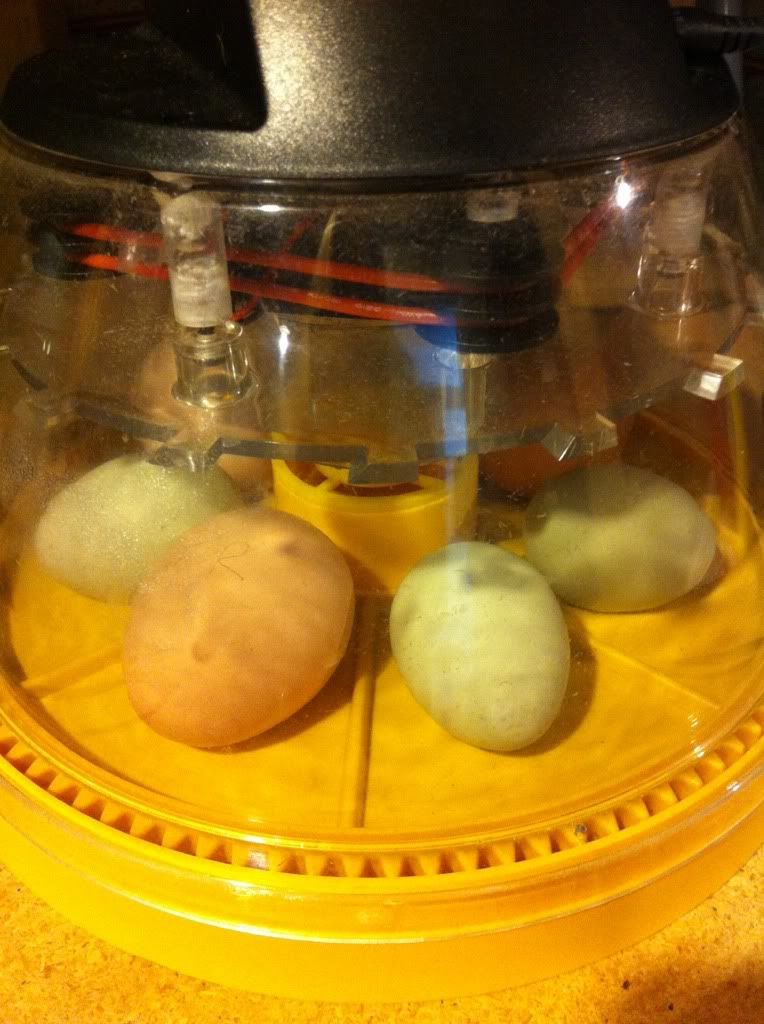Then, on Friday, I received the official lab report. It read:
DIAGNOSES:
Yolk peritonitis, chronic
Lymphoma, ovary, mesentery and small intestine (lymphoid leukosis)
The cause of death is neoplasia involving multiple organs which in this age of a bird, is most consistent with lymphoid leukosis (LL). LL is the most common form in the leukosis/sarcoma group of diseases which includes a variety of tumors in chickens caused by retroviruses. Mortality in affected flocks is usually 1-2%, but can be higher. These viruses are transmitted vertically from hen to chicks and horizontally from bird to bird by direct contact. Most chickens become infected by contact with congenitally infected birds. The primary differential diagnosis is Marek's disease. Marek's disease (MD - herpesvirus) can be impossible to differentiate microscopically, however LL does not usually occur before 14 wks of age and most mortalities are between 24-40 wks with this agent. MD usually occurs earlier with mortalities usually between 10-20 wks of age. Eradication of retroviruses from the flock involves breaking vertical transmission from hen to progeny ( testing hens for viral infection prior to selecting for breeding) and horizontal transmission from bird to bird (separation of known exposed birds from new birds). Control of Marek's disease in a flock involves similar principles as well as vaccination against the virus.
Remains of this bird were incinerated as requested.
So, it wasn't as simple as originally thought. LL, as lymphoid leukosis is commonly called, is almost as bad as Marek's disease. In a way, it's worse, as Marek's is not transferred vertically (i.e. mother to chick) and LL is. I've been researching like crazy, and I've learned a few things. First, incubation for LL is 4-6 months, and it's generally seen in older chickens. Second, some chickens can be exposed, but never develop the illness. I guess it can be quite common, and doesn't have the mortality rate that Marek's has. Once a chicken develops the tumors, it is always fatal. Because of the incubation period being so long, I feel that I can safely say that my lavender ameraucana death was not related- the two chickens hadn't been in contact with each other that long.
Marek's disease tends to kill chickens earlier, and LL tends to kill later- around 5-8 months of age is the most common age. My partridge was at least 2-3, so I'm not sure what to make of that.
Because the most common way to get LL is to be infected by the mother, I had to make a very tough decision tonight. I have eggs in the incubator, set to hatch tomorrow. I knew that one was from the partridge rock, because she laid it into my hand and then I put it in the incubator. The odds of that chick having this disease was quite high, and I didn't want to risk it infecting the rest of the flock (if it isn't already too late). Do I euthanize it or not?
I finally decided for the good of the flock, and to minimize risk, I would take it out of the incubator. I figure that it's much easier to euthanize an egg than a fluffy chick.
I took it out of the incubator, and decided that I would put it in the freezer, so as to have the end come about as quickly and humanely as possible. I openly admit to crying as I felt it tapping on the shell as I stuck it in the freezer. I plan to leave it there overnight, make sure that it has no chance of being alive, and then I'll bury it in the yard.
My plan for now is to keep the six chickens that were with the partridge rock in their separate coop. I'd planned to mix the flocks soon, but I think I'd better not. I'll keep them all separated for 6 months. If nobody else develops any symptoms, I'll assume that my flock wasn't infected. I could be wrong, but it's my understand that vertical transmission (mother to chick) is much more common than horizontal transmission (chicken to chicken).
I have to admit this discovery has really put a pall on the hatching of these chicks.
I'm also a little upset. When she emailed me in the first place, she indicated that there was no sign of Marek's Disease, which I assumed to mean she didn't see tumors, other than the ovarian one. But, when you read the final report, there was also tumors in the mesentery (basically all that tissue around your digestive organs) and in the small intestine, plus lymphoma. Then, to add insult to injury, they charged me an additional $20 to dispose of the chicken. When I was quoted $38 for the necropsy, I assumed that included disposal. Oh well, live and learn.

